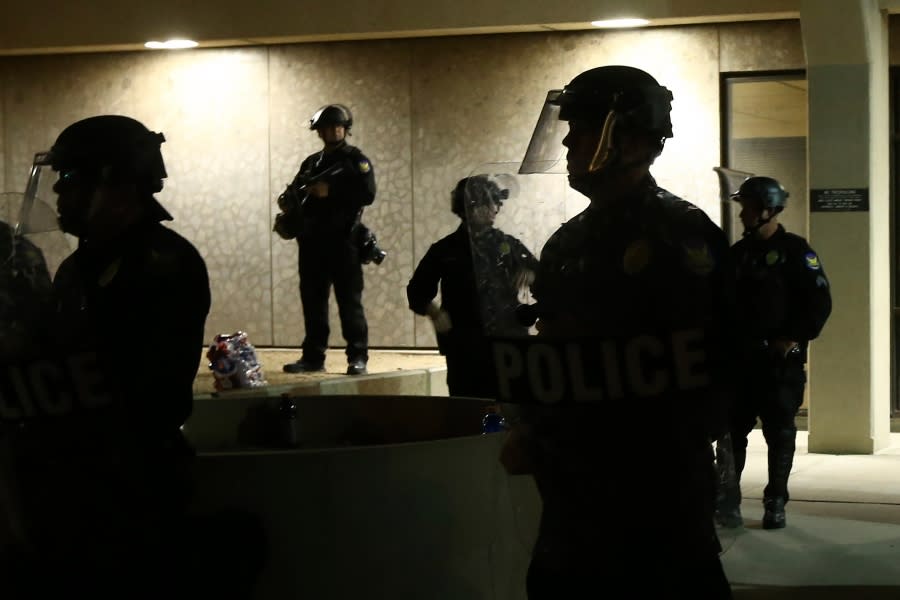ACLU files lawsuit against Arizona law banning recording of police

- Oops!Something went wrong.Please try again later.
The American Civil Liberties Union (ACLU) of Arizona filed a lawsuit on Tuesday against a law in the state that bans members of the public from recording police within 8 feet of a “law enforcement activity.”
The lawsuit states that the law, which Gov. Doug Ducey (R) signed last month, violates the First Amendment, suppressing the right to free speech and limiting accountability and protests of government actions.
The law states that people cannot record the law enforcement activity if they know or reasonably should know that the activity is occurring. They are also are prohibited from recording if an officer has warned them about capturing the incident within 8 feet.
The law defines a law enforcement activity as questioning a “suspicious” person, conducting an arrest, issuing a summons, enforcing the law or handling an “emotionally disturbed or disorderly person” exhibiting “abnormal” behavior.
The law, which is set to go into effect next month, does permit someone who is the subject of a law enforcement activity and those in a vehicle that has been stopped by police to record their interactions if it does not interfere with “lawful police actions.”
A release from the ACLU states that recording police encounters and other law enforcement activity in public is one of the few ways that members of a community and journalists can hold police accountable for misconduct.
“At a time when the public is demanding police accountability, Arizona wants to criminalize the public’s most effective tool for shining a light on police violence,” said Jared Keenan, the legal director of the ACLU of Arizona. “This law is not only unconstitutional, it is bad public policy.”
The release states that the law grants too much power to individual officers to prevent recordings if they do not want their actions to be filmed. It states that recording police during large protests would become “nearly impossible” because protesters might walk within 8 feet of a police line.
Video recordings of police interactions with civilians have played significant roles in cases of alleged police brutality in recent years. Bystander footage went viral on social media and was used in court following the police killing of George Floyd in 2020.
Former Minneapolis police officer Derek Chauvin was convicted of murder following the trial.
Arizona state Rep. John Kavanagh (R), who sponsored the legislation, said in a March op-ed that having the law as a “buffer” is necessary, as police may not know if someone approaching is an innocent bystander or an accomplice to someone they are arresting.
He said the quality of videos showing possible excessive force should not be impacted because of the sophistication of modern cellphone cameras.
The ACLU filed the lawsuit along with a group of 10 media organizations in the country or state.
Mickey Osterreicher, the general counsel for the National Press Photographers Association, one of the plaintiffs in the case, said in the release that they worry the law will be used as a “sword” to harm the “clearly established” First Amendment right to record police while performing their responsibilities instead of a “shield” for officer safety.
For the latest news, weather, sports, and streaming video, head to The Hill.

